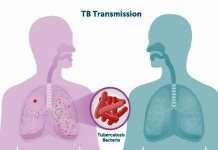-Says Nigeria is far from achieving herd immunity by 2022

The Pharmaceutical Society of Nigeria (PSN) has bemoaned the negative impacts of the global pandemic of SARS-CoV-2 on the prevalence of hepatitis in the country, saying it has contributed in no mean measure in worsening the conditions of people living with hepatitis without the knowledge of the disease.
The Society stressed the urgency needed to eliminate hepatitis by the year 2030 in line with the World Health Organisation (WHO) strategy to rid the global community of the disease in the nearest future.
Viral hepatitis is an inflammation of the liver that causes severe liver disease and hepatocellular cancer.
Commemorating the World Hepatitis Day, marked on 28 July of every year, WHO described hepatitis as a silent epidemic with more than 90 million people living with the disease in Africa, representing 26 per cent of the global population.
In a statement by the global health body, it was disclosed that more than 124,000 Africans die each year as a result of undiagnosed and untreated hepatitis, with African children around 4.5 million, under five years infected with chronic hepatitis B, reflecting an enormous 70 per cent of the global burden in that age group.
WHO Regional Director for Africa, Dr Matshidiso Moeti, harped on the need for increased awareness about the disease under the theme for this year’s celebration: ‘Hepatitis can’t wait.’
Addressing journalists on the prevalence of the condition in Nigeria, PSN president, Pharm. (Mazi) Sam Ohuabunwa, identified the causes of hepatitis as pathogenic and non-pathogenic, saying that someone dies from hepatitis related illness every 30 seconds, which has been worsened by the current COVID-19 crisis, as pharmacists can’t wait to act on viral hepatitis.
Ohuabunwa however trashed the 2022 target set by the Nigerian government in achieving herd immunity amid ravaging Delta variant, describing it as unrealistic with less than one per cent of the population vaccinated in six months to the end of the year, leaving merely 198 million Nigerians without vaccination. He thus charged the policy makers and stakeholders to go back to the drawing board and workout a more feasible plan to meet 20 per cent vaccination to start with.
“It is reported that every 30 seconds someone dies from hepatitis related illness which has been worsened by the current COVID-19 crisis. Pharmacists can’t wait to act on viral hepatitis. We have set up screening, education and enlightening campaigns all over the country to equip people with knowledge to act”, Ohuabunwa stated.
He raised concerns on the highly contagious nature of the new strain of SARS-CoV-2, Delta variant, which is spreading rapidly in some West African countries and almost becoming the dominant strain of the virus. Ohubunwa stated “It is the most dominant strain presently in India and the UK, by the end of June, made up more than 20 per cent of cases in the U.S. and has been identified in Nigeria”
While WHO has labelled this version of the virus as Delta “a variant of concern” based on its double spreading speed, which is 2X faster than the most common strain especially in the unvaccinated communities, the PSN helms man decried the non-availability of vaccines in Nigeria, which makes the population more vulnerable to the disease, among other public health challenges.
He further explained : “Nigeria received about 3,938,945 doses of Oxford–AstraZeneca from COVAX in early March of 2021. Present statistics available shows that from 5 March to 10 July, population who are fully vaccinated are about 1,404,740 (0.70 %), those who received 1st dose are about 1,129,465 people (0.56%) while about 198,465,795 people (98.74%) are unvaccinated. This unacceptable gap in vaccination is too bad when Delta variant is ravaging.
“Nigeria needs to do more to enable it acquire capacity for making vaccines. Inequality and nationalism of vaccines have put our country behind our projections and schedules.
“For instance, Nigeria was ready to receive its first COVID-19 vaccine doses by the end of January. The government wants to vaccinate 40 per cent of the country’s population by the end of this year and the remaining 30 per cent by the end of next year to achieve herd immunity; we need to return to the desired new normal.
“Fact is that we are far from this target, mostly because we do not control the vaccine availability”.
He noted that the human resources needed to achieve this goal is available, but lacking political will to make it happen. “While we align with the COVAX arrangement, we implore the government to explore other avenues like purchasing from the list of vaccines already authorised by NAFDAC and granting permission to the private sector to provide vaccines. We need all hands on deck.
“We encourage Nigerians to continue with the stipulated non pharmaceutical measures to avert a crisis that could overwhelm our fragile healthcare delivery system”, Ohunbunwa stated.










